.Our Global Neighborhood
Report of The Commission on Global
Governance A Summary Analysis by Henry Lamb(First published in eco-logic, January/February, 1996) from Sovereingty Website The Commission on Global Governance has released its recommendations in preparation for a World Conference on Global Governance, scheduled for 1998, at which official world governance treaties are expected to be adopted for implementation by the year 2000. Among those recommendations are specific proposals to expand the authority of the United Nations to provide:
These proposals reflect the work of dozens of different agencies and commissions over several years, but are now being advanced by the Commission on Global Governance in its report entitled Our Global Neighborhood (Oxford University Press, 1995, ISBN 0-19-827998-3, 410pp). The Commission consists of 28 individuals, carefully selected because of their prominence, influence, and their ability to effect the implementation of the recommendations. The Commission is not an official body of the United Nations. It was, however, endorsed by the UN Secretary General and funded through two trust funds of the United Nations Development Program (UNDP), nine national governments, and several foundations, including the MacArthur Foundation, the Ford Foundation, and the Carnegie Corporation. The Commission believes that world events, since the creation of the United Nations in 1945, combined with advances in technology, the information revolution, and the now-global awareness of impending environmental catastrophe, create a climate in which the people of the world will recognize the need for, and the benefits of, global governance. Global governance, according to the report, "does not imply world government or world federalism." Although the difference between "world government" and "global governance" has been compared to the difference between "rape" and "date-rape," the system of governance described in the report is a new system. There is no historic model for the system here proposed, nor is there any method by which the governed may decide whether or not they wish to be governed by such a system. Global governance is a procedure toward defined objectives that employs a variety of methods, none of which give the governed an opportunity to vote "yes" or "no" for the outcome. Decisions taken by administrative bodies, or by bodies of appointed delegates, or by "accredited" civil society organizations, are already implementing many of the recommendations just published by the Commission.
The Foundation for Global Governance The foundation for global governance is the belief that the world is now ready to accept a "global civic ethic" based on "a set of core values that can unite people of all cultural, political, religious, or philosophical backgrounds." This belief is reinforced by another belief:
The report says:
In the fine print, these lofty values lose much of their appeal. Respect for life, for example, is not limited to human life. "Respect for life" actually means equal respect for all life. The Global Biodiversity Assessment (Section 9), prepared under the auspices of the United Nations Environment Programme, describes in great detail the biocentric view that "humans are one strand in nature's web," consistent with the biocentric view that all life has equal intrinsic value. Some segments of humanity may balk at extending to trees, bugs, and grizzly bears the same respect for life that is extended to human beings. "Next to life, liberty is what people value most," the report says. It also says:
Maurice Strong, a member of the Commission, and a likely candidate for the position of Secretary General, said in an essay entitled Stockholm to Rio: A Journey Down a Generation:
The core value of "justice and equity" is the basis for sweeping changes in the UN as proposed by the Commission. The Commission has determined that:
"Mutual respect" is broadly defined as "tolerance."
Individual achievement and personal responsibility are counter to the value of "mutual respect" as suggested in the UN's World Core Curriculum, authored by Robert Muller, Chancellor of the UN University and former Deputy Secretary General to three UN Secretaries General. The Robert Muller School World Core Curriculum Manual (November, 1986) says:
The value of "caring" is institutionalized in the Commission's proposals:
"Integrity" is defined to be the adoption and practice of these core values and the absence of corruption. As the world adopts these core values, the Commission believes a "global ethic" will emerge. Global governance will,
The effectiveness of this global ethic,
Among the "rights" such a global ethic would bestow upon all people are:
The right to "a secure life" means much more than freedom from the threat of war.
Herein lies a significant expansion of the responsibilities of the United Nations. Until now, the UN's responsibility was limited to its member states. The Commission's proposals will give to the UN responsibility for the security of individuals within the boundaries of member states. This shift is extremely significant as we shall see when we examine proposed changes in the structure and authority of UN organizations. The right to a secure life also means the right to live on a secure planet.
Clearly, the Commission sees the UN as the global authority for protecting the environment. The right to earn a "fair living" carries with it far-reaching implications. The Commission discusses at length what is "fair" and what is not. It is not fair, for example, for the developed countries, which contain 20 percent of the population, to use 80 percent of the natural resources. It is not fair for the permanent members of the Security Council to have the right of veto. In general, it is not fair for one segment of the population to be rich while another segment of the population is poor.
The right to earn a fair living implies that there must be some kind of a job available from which people may earn their living. Under the auspices of a new Economic Security Council, which we will discuss later, the Commission would give the UN responsibility for seeing that all people would have "an opportunity to earn a fair living." The Commission sees pollution of the global atmosphere and the depletion of ocean fisheries as inadequacies of global governance.
Trusteeship over the global commons provides the basis to levy user fees, taxes and royalties for permits to use the global commons. Global commons are defined to be:
This broad definition of the global commons would give the UN authority to deal with environmental matters inside the borders of sovereign states, and on privately owned property. The foundation of global governance is a set of core values, a belief system, which contains ideas that are foreign to the American experience, and ignores other values and ideas that are precious to the American experience. The values and ideas articulated in the Commission's report are not new. They have been tried, under different names, in other societies. Often, the consequences have been devastating. These values, under new names, have been emerging in UN documents since the late 1980s, and have dominated international conferences, agreements, and treaties since 1992. This set of core values underlies Agenda 21 adopted in Rio de Janeiro. Virtually every international treaty and agreement introduced during this decade reflects this set of core values. The Commission's recommendations to achieve global governance seek to enforce these values through the programs authorized and implemented by a global bureaucracy growing from a revitalized and restructured United Nations system.
The Structure of Global Governance The UN Security Council is the supreme organ of the United Nations system. Originally, the Council had eleven members, of which China, France, Russia, the United Kingdom, and the United States were permanent members with veto power. The other six positions rotated in two- year terms among the remaining members of the UN General Assembly. The Council now has 15 members which would be increased to 23. The proposal stops short of recommending the elimination of permanent status, but does recommend that the remaining members serve as "standing members" until a full review of member status can be conducted, including the permanent members, "in the first decade of the next century." A phase-out of the veto power of permanent members is recommended. Perhaps more important are the proposed new principles under which the Security Council may take action.
The Commission believes and recommends,
Subtle, carefully crafted language significantly expands the mission
and authority of the UN Security Council to intervene in the affairs of
sovereign states when it determines that the security of individuals is
in jeopardy.
This expanded authority includes military intervention - as a last resort. The Security Council would also be empowered to raise a standing army. Article 43 of the UN Charter authorizes such a force, but has never been activated. The Commission says:
Such a force would be under the exclusive authority of the UN Security Council and under the day-to-day command of the UN Secretary General. It would maintain its own support and mobilization capabilities and be available for "rapid deployment" anywhere in the world. The Commission envisions a small, highly trained, well equipped force of 10,000 troops for immediate intervention while more conventional "peace keeping" forces are assembled from member nations.
A Restructured Trusteeship Council The Trusteeship Council is an original principal organ of the United Nations system. Created to oversee nations in transition from colonies to independence, its work was concluded in 1994 when the last of the colonies, Palau in the South Pacific, gained its independence. The
Commission has proposed amending Chapters 12 and 13 of the UN
Charter to give the Trusteeship Council authority over the global
commons, and to reconstitute the Council with a fixed number of
members including qualified members from "civil society." This proposal is another extremely
significant step in the creation of a new form of governance. A "qualified member from civil
society" means a representative from an
The status of NGOs is elevated even further in the Commission's recommendations which we will be see later. Here, however, for the first time, unelected, self-appointed, environmental activists are given a position of governmental authority on the governing board of the agency which controls the use of atmosphere, outer space, the oceans, and, for all practical purposes, biodiversity. This invitation for "civil society" to participate in global governance is described as expanding democracy. The work assigned to the Trusteeship Council is now the responsibility of the Economic and Social Council (ECOSOC), which was an original principal organ of the UN system. The Commission proposes that ECOSOC be retired and all the agencies and programs under its purview be shifted to the Trusteeship Council. The United Nations Environment Programme, along with all the environmental treaties under its jurisdiction, would ultimately be governed by a special body of environmental activists, chosen only from accredited NGOs appointed by delegates to the General Assembly who are themselves appointed by the President. The Commission says:
The environmental work program of the entire UN system will be authorized and coordinated by this body. Enforcement will come from an upgraded Security Council, and from the new Economic Security Council.
The New Economic Security Council Described as an "Apex Body," the Economic Security Council (ESC) is proposed to have "the
standing in relation to international economic matters that the Security Council has in peace and
security matters." The new ESC would be
It would work by consensus without veto power by any member.
According to the Commission, the new ESC would:
The agenda to be addressed by the ESC includes:
The Commission recommends that the ESC have no more than 23
members, that it be headed by a new Deputy
PPP is an accounting device, which (according to a chart on page 163 of the report) transforms the 1991 U.S. trade deficit of $28 billion into a trade surplus of $164 billion. Both the World Trade Organization (WTO) and the International Labor Organization (ILO) would be brought under the authority of the new ESC. The Commission believes:
The ESC would be given authority over telecommunications and multimedia. Since the atmosphere and outer space are "global commons" assigned to the Trusteeship Council, businesses that use the air waves and satellites would be subject to the policies of the ESC. The Commission says:
The Commission calls on the WTO to give poor countries preferential treatment in license allocations and to create rules to counter the influence of "national monopolies." Without this high-level ESC, the Commission fears that "the global neighborhood could become a battleground of contending economic forces, and the capacity of humanity to develop a common approach will be jeopardized." The ESC is expected to address the problem of tariffs and quotas, and,
The ESC is designed to centralize and consolidate policy making for not only world trade, but also for the international monetary system and world development. The Commission says:
To deal with third-world debt, the Commission recommends that a system be established,
The ESC is expected to facilitate "technology transfer" which is "crucial to development" in developing countries. The ESC is expected to establish immigration policies because,
Environmental policies are to be under the authority of the Trusteeship Council, but implementation and enforcement of those policies will largely be a function of the ESC. Implementation measures will be coordinated through UN organizations and NGOs. The Commission recognizes that:
(Co-chair of the Commission on Global
Governance is the immediate past president of the IUCN, Shirdath Ramphal; the IUCN
The Commission on Sustainable Development (CSD), created as a result of the 1992 United Nations Conference on Environment and Development (UNCED), (headed by Maurice Strong) is expected to be,
The Commission recognizes that:
To insure greater involvement by "civil society," the Commission has formalized proposals to elevate the status of NGOs.
The Machinery of Global Governance The Commission recommends the creation of two new bodies: (1) an Assembly of the People, and (2) a Forum of Civil Society.
The Forum of Civil Society would consist of "300 - 600 representatives of organizations accredited to the General Assembly...." The Forum would meet annually prior to the meeting of the UN General Assembly.
NGO participation in global governance is an essential feature, and is, in fact, the dimension of governance that is totally new. It is no longer just an idea. It is a demonstrated fact of life which the Commission now seeks to institutionalize through legal status. It is the machinery
The idea of NGO participation in global governance is as old as the United Nations. Julius Huxley, who founded the United Nations Educational, Scientific, and Cultural Organization (UNESCO), in 1946, also founded the IUCN in 1948. It was the IUCN that effectively lobbyied the UN General Assembly in 1968 to adopt Resolution #1296, which establishes a policy for "accrediting" certain NGOs. The IUCN is accredited to at least six different UN organizations. Moreover, it is the premier international NGO claiming a membership of 53 international NGOs, 550 national NGOs, 100 government agencies, and 68 sovereign nations. The current president of the IUCN is Jay Hair, former president of America's largest NGO, the National Wildlife Federation. The IUCN created the World Wide Fund for Nature (WWF) which in turn, created the World Resources Institute (WRI). These three NGOs share publication credit with the United Nations Environment Programme (UNEP) on virtually every major document on the environment that has been released since 1972.
The IUCN Annual Report for 1993 claims more than 6000 "experts" in their network who serve as volunteers,
According to the Commission's report, 28,900 international NGOs are known to exist, and many are directly involved in advancing the agenda of global governance. At UNCED, for example, 7,892 NGOs were certified to participate in the "civil society forum" which preceded the actual conference. Many of the NGOs participated in the preliminary Preparatory Committee Meetings, or "PrepComs," and were prepared and present to lobby the official delegates to the conference. This procedure is followed at virtually every global and regional conference. This procedure is now being applied to domestic policy. Members of the international NGO community have strong national constituencies, and enormous staff and money capabilities. Global issues, such as the Biodiversity Treaty, which require national or local action, become the focus of the domestic agenda for national NGOs. The structure and mechanics of "civil society" participation in global governance is further revealed in a variety of documents originating from the UN organizations and from the IUCN, WWF, and the WRI. Most often, the term "Public/Private Partnerships" is used to describe
and define "civil society" participation. At the lowest, "on-the-ground" level, NGOs are present and prepared to lobby on issues
relating to a particular
Public/Private Partnerships encourage the creation of "boards" or "councils" which are supposed to represent the interests of all the "stakeholders." In reality, these boards are encouraged because well-prepared NGOs are most often able to dominate the outcome. At the local level, NGOs are frequently full-time professionals, paid by a not-for-profit organization, funded through the coordinated efforts of the Environmental Grantmakers Association or the federal government. The other "stakeholders" in
these partnerships are business people who work for a living and simply want to take care of the
Within the broader agenda, NGOs within these local partnerships coordinate with NGOs assigned to multi-county, or regional councils. The NGOs that are assigned to regional councils and partnerships coordinate with the NGOs that set the national agenda. And they are, of course, the same NGOs that are accredited to the UN, or are members of the IUCN. Deep within the 1,100 or more pages of the Global Biodiversity Assessment, there is a discussion of this procedure which, ideally, would culminate with a "Bioregional Council," consisting of "stakeholders," but dominated by affiliates of "accredited" NGOs, that would have ultimate authority over all local land and resource use decisions. To further strengthen the participation of NGOs, the Commission recommends the creation of "a new `Right of Petition' available to international civil society." The recommendation calls for the creation of a Council for Petitions,
This new mechanism provides a direct route from the local, "on-the-ground" NGO affiliates of national and international NGOs to the highest levels of global governance. Although this mechanism has not yet been formally incorporated into the UN system, the procedure is being used. For example, the Greater Yellowstone Coalition, a group of affiliated NGOs, recently petitioned the World Heritage Committee of UNESCO asking for intervention in the plans of a private company to mine gold on private land near Yellowstone Park. The UNESCO Committee did intervene, and immediately listed Yellowstone as a "World Heritage Site in Danger." Under the terms of the World Heritage Convention, the United States is required to protect the park, even beyond the borders of the park, and onto private lands if necessary.
Enforcing Global Governance
The Commission intends to remedy this situation. Historically, scholars have argued that international law was not really law because there was no international legislature to create it, nor an international police force to enforce it. The Commission's recommendations remedy these problems. The UN International Law Commission (ILC), a little-known subsidiary organ of the General Assembly created in 1947, is expected to expand its activity to include developing and drafting proposed international law. The IUCN now provides this service through its Environmental Law Centre. The Commission recommends that treaties and agreements be written to include binding adjudication by the World Court, and that all nations "accept compulsory jurisdiction of the World Court." The WTO is a step in this direction. Members agree in advance to accept WTO decisions and not seek bilateral resolution of disputes.
The New International Criminal Court
The example used to justify this court is Lybia's refusal to extradite the accused terrorists responsible for the bombing of Pan Am flight 103 over Lockerbie.
The Commission recognizes that these recommendations may encounter opposition, and warns that,
Although not explicitly referenced, this revealing
commentary likely points to the outpouring of grassroots
opposition to the
The treaty - signed by President Clinton, approved by the Democratically-controlled Foreign Relations Committee, championed by virtually all the accredited NGOs, and expected to be approved by a wide margin, - never reached the floor for a vote because of "populist action." The Commission does not discuss why the activity of accredited NGOs and their affiliates is "expanding democracy" through civil society participation, while at the same time, activity of non-accredited civil society is "political pressure," and "populist action."
Financing Global Governance The Commission says:
Currently, total UN expenditures are slightly more than $11 billion annually, although not all the costs of peacekeeping activities are reflected through the UN system. The cost of implementing Agenda 21 was estimated in 1992 to be $600 billion per year. The proposed expansion of the UN system, and the proposals to expand programmatic responsibility suggest staggering costs. Currently, UN costs are paid by member nations in the form of assessments and voluntary contributions. The UN Charter says the costs will be paid by member nations as apportioned by the General Assembly, with no nation paying more than 25 percent. The United States is assessed 25 percent, contributes substantially to the volunteer programs, and ultimately pays more than 30 percent of the peacekeeping costs. Because the UN has no power to enforce payment of either assessments or voluntary contributions, the Commission says,
The United States has often withheld payment as a means of influencing UN policy. The Commission is careful to avoid giving the UN direct taxing power.
Such an arrangement appears in the Law of the Seas treaty which authorizes a UN organization to charge application fees and royalties to companies wishing to mine the sea bed - even though the United States has not ratified the treaty. The Commission's refusal to recommend taxing power for the UN while advancing dozens of global revenue-raising schemes is similar to declaring that "global governance" is not "world government." The Commission says,
The favored scheme was first advanced by Nobel Prize winner, James Tobin. He has proposed a tax on international monetary exchange which would yield an estimated $1.5 trillion per year.
The Commission supports a $2 per barrel tax on oil, which automatically escalates to $10 per barrel in 10 years.
Other recommendations for global revenues include:
Conclusion Many of the recommendations contained in this report have already been incorporated into treaties, agreements, and proposals initiated by the international community. Some have already been implemented. The Commission has called for the General Assembly to schedule a World Conference on Governance in 1998. Preparatory work has already begun. PrepComs will be conducted to develop documents on global governance - similar to the procedure used to develop the documents presented at Rio - which are to be adopted at the 1998 Conference and ratified for implementation by the year 2000. Only "accredited" NGOs will be allowed to participate in the PrepComs. Only accredited NGOs and their affiliates will participate in the adoption strategy.
The NGO machinery of global governance is at work in America. Their activity includes agitation at the local level, lobbying at the national level, promoting the celebration of the UN's 50th anniversary, producing studies to justify global taxation, and paying for television ads that elevate the image of the UN. The strategy to advance the global governance agenda specifically includes programs to discredit individuals and organizations that generate "internal political pressure" or "populist action" that fails to support the new global ethic. The national media has systematically portrayed dissenting voices as right-wing-extremist, militia-supporting fanatics. Consequently, the vast majority of American citizens have no idea how far the global governance agenda has progressed. This year, 1996, may be the last opportunity the world has to avoid, or at least to influence the shape of global governance. The United States is the only remaining power strong enough to influence the United Nations. Those voices now speaking for all Americans in the United Nations are cheering the forces that would diminish national sovereignty and render individual liberty and property rights relics of the past. If the current voices representing the United States continue to push for global governance, the world will be committed to a course which will truly transform society more dramatically than the Bolshevik revolution transformed Russia. The recommendations of the Commission, if implemented, will bring all the people of the world into a global neighborhood managed by a world-wide bureaucracy, under the direct authority of a minute handful of appointed individuals, and policed by thousands of individuals, paid by accredited NGOs, certified to support a belief system, which to many people - is unbelievable and unacceptable. (Our
Global Neighborhood: The Report of the
Commission on Global Governance may be
obtained from Oxford University Press. Call (919) 677-0977; paperback, $14.95, ISBN 0-19-827997-3, 410 pages.)
About the Commission on Global Governance
The report was presented in April, 1991, in Stockholm, and Carlsson and Ramphal were asked to co-chair the new commission the report recommended. The Co-chairmen met with Boutros Boutros-Ghali, UN Secretary General, in April, 1992, to secure his endorsement of the effort. By September, the Commission was established with 28
members and funding from two trust funds administered by the United Nations Development
Program, nine national governments, and private foundations.
Meet the Commissioners
|
 the international level," and "Although states are sovereign, they
are not free individually to do whatever they want."
the international level," and "Although states are sovereign, they
are not free individually to do whatever they want."
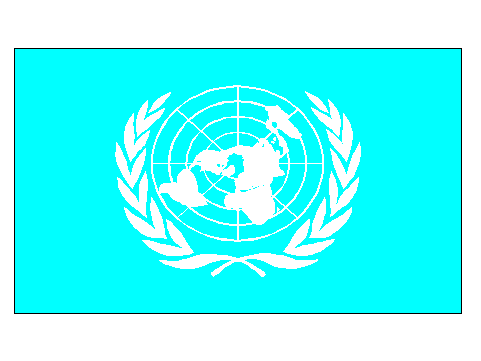 when made more visible by global
television. They demand, and in recent decades have begun to receive, a new standard of global
governance."
when made more visible by global
television. They demand, and in recent decades have begun to receive, a new standard of global
governance."
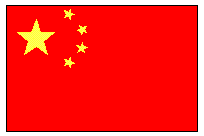 Security of individuals, under the set of core values and the
new global ethic, includes an opportunity to earn a fair living, and
equal access to the global commons.
Security of individuals, under the set of core values and the
new global ethic, includes an opportunity to earn a fair living, and
equal access to the global commons.
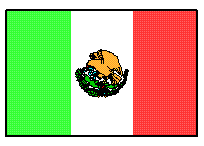 accredited NGO (non-government
organization).
accredited NGO (non-government
organization).
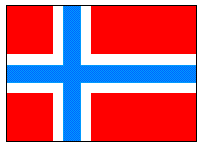 a deliberative, policy body
rather than an executive agency.
a deliberative, policy body
rather than an executive agency.
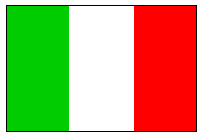 Secretary-General for
Economic Co-operation and Development, and that the gross domestic
product (GDP) of all member nations be measured by and based upon
"Purchase Power Parity (PPP)."
Secretary-General for
Economic Co-operation and Development, and that the gross domestic
product (GDP) of all member nations be measured by and based upon
"Purchase Power Parity (PPP)."
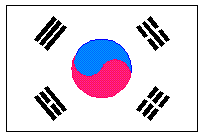 standards, different approaches to social provision and labour
markets, competition policy, environmental control, investment incentives, corporate taxation,
and different traditions of commercial and intellectual property law, of corporate governance, of
government intervention, and of cultural behavior."
standards, different approaches to social provision and labour
markets, competition policy, environmental control, investment incentives, corporate taxation,
and different traditions of commercial and intellectual property law, of corporate governance, of
government intervention, and of cultural behavior."
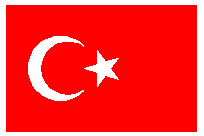 created
the WWF in 1961, and the WWF created the World Resources Institute in 1982. The immediate
past president of WRI, Gustave Speth, is now head of the United Nations Development Program
(UNDP), and WRI's chief policy analyst, Rafe Pomerance, is now Deputy Assistant Secretary of
State for Environment, Health and Natural Resources).
created
the WWF in 1961, and the WWF created the World Resources Institute in 1982. The immediate
past president of WRI, Gustave Speth, is now head of the United Nations Development Program
(UNDP), and WRI's chief policy analyst, Rafe Pomerance, is now Deputy Assistant Secretary of
State for Environment, Health and Natural Resources).
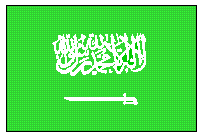 of global governance which is organized and coordinated from the
highest chambers of governance at the United Nations, to the most
local bodies of governance, including County Commissions, City
Councils, and even to local watershed councils.
of global governance which is organized and coordinated from the
highest chambers of governance at the United Nations, to the most
local bodies of governance, including County Commissions, City
Councils, and even to local watershed councils.
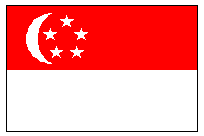 As of 1994, there
were 980 accredited NGOs. These NGOs are accredited because of
their demonstrated support of issues being advanced by the United
Nations. A single NGO is selected to coordinate activities within each issue area. In addition to the
Internet, NGO coordination information is published by the WRI in a publication called
Networking. Activity of non-accredited NGOs is coordinated through membership in the IUCN.
As of 1994, there
were 980 accredited NGOs. These NGOs are accredited because of
their demonstrated support of issues being advanced by the United
Nations. A single NGO is selected to coordinate activities within each issue area. In addition to the
Internet, NGO coordination information is published by the WRI in a publication called
Networking. Activity of non-accredited NGOs is coordinated through membership in the IUCN.
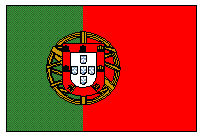 watershed, or a particular project under
consideration by a local zoning board.
watershed, or a particular project under
consideration by a local zoning board.
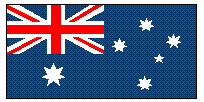 environment, but
have too little time to become experts on the issues.
environment, but
have too little time to become experts on the issues.
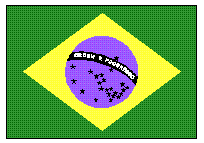 "From the outset, the World Court was marginalized...states were free
to take it or leave it, in whole or in part. The rule of law was asserted
and, at the same time, undermined."
"From the outset, the World Court was marginalized...states were free
to take it or leave it, in whole or in part. The rule of law was asserted
and, at the same time, undermined."
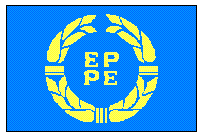 create a new
International Criminal Court.
create a new
International Criminal Court.
 Biodiversity Treaty when presented to the
Senate for ratification in the 103rd Congress.
Biodiversity Treaty when presented to the
Senate for ratification in the 103rd Congress.
 More importantly, only delegates appointed by the President of
the United States will be able to cast a vote on all the issues that
so dramatically affect every American. The current Presidential
appointees are the very people who helped develop the proposals
from their various positions with accredited NGOs.
More importantly, only delegates appointed by the President of
the United States will be able to cast a vote on all the issues that
so dramatically affect every American. The current Presidential
appointees are the very people who helped develop the proposals
from their various positions with accredited NGOs.
 Oscar Arias, Costa Rica President of Costa Rica from
1986 to 1990; drafted the Arias Peace Plan which was
awarded the Nobel Peace Prize; founded the Arias
Foundation for Peace and Human Progress.
Oscar Arias, Costa Rica President of Costa Rica from
1986 to 1990; drafted the Arias Peace Plan which was
awarded the Nobel Peace Prize; founded the Arias
Foundation for Peace and Human Progress.